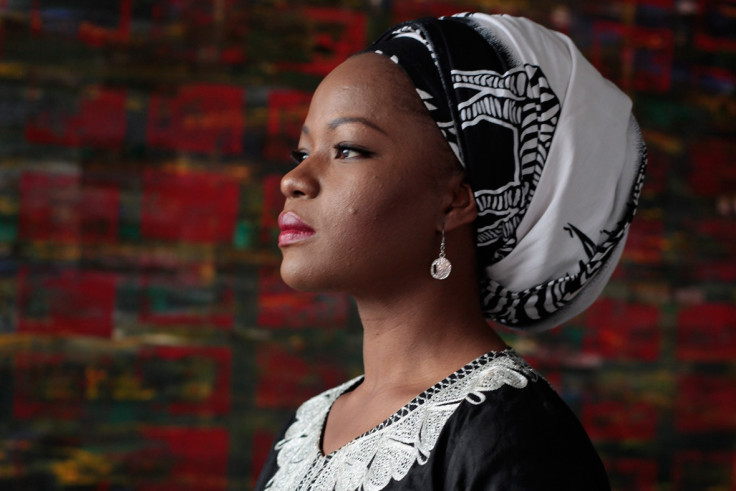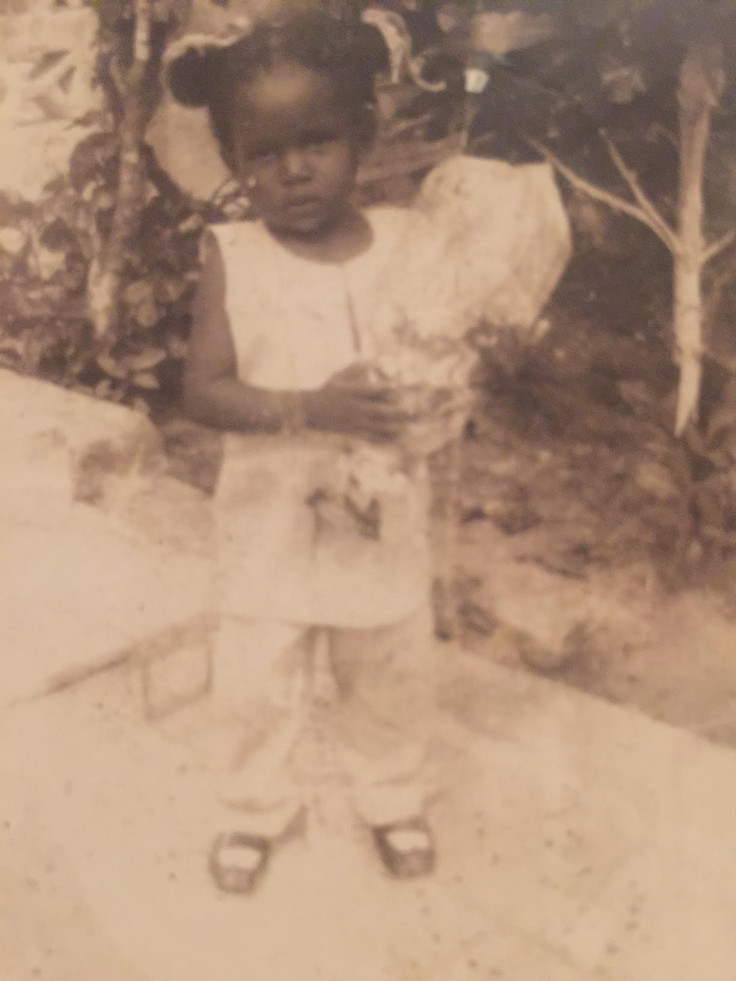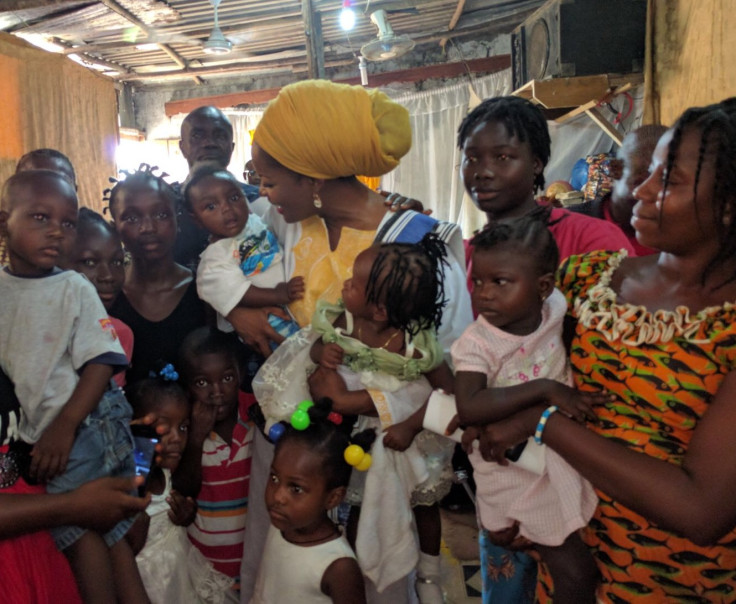Meet MacDella Cooper, the former refugee running to be Liberia's next female president
Cooper exclusively speaks to IBTimes UK about her fight to survive one of Africa's bloodiest wars.

When as many as 700,000 Liberians fled abroad to escape the country's 14 years of brutal civil war. MacDella Cooper, the first woman to declare her ambition for Liberia's 2017 presidential elections, was one of them.
Last month, the former refugee announced her ambitions for the upcoming presidential elections on a Union of Liberian Democrats (ULD) ticket. IBTimes UK met the woman hoping to become Liberia's second ever female president, after current President Ellen Johnson Sirleaf.
Born in the 1970s, Cooper had a cosseted childhood, spent between her great-grandparents' house in the countryside and her mother's home in the capital, Monrovia.
Her mother remarried in the early 1980s and Cooper's family expanded. The couple both raised each other's three children – Cooper had two older brothers – before later on having three more.
Speaking exclusively to IBTimes UK, Cooper admits with a suave voice that life with her mother, a nurse working at the John F Kennedy Hospital and her step-father, High Commissioner for the United Nations' refugee agency, was "comfortable", yet somewhat restrained.
"Looking back, our world was different: you could not speak about politics, especially leadership. Our President at the time, Samuel Doe, didn't permit it… so we grew up with this ideology of ignoring politics and focusing on things outside of the country," she explained.

Fast forward to 1989, and Cooper heard rumours of war coming to Liberia. Children shared stories of freedom fighters coming to take over the country and bring it back to "normal".
"It was exciting for most people, but we couldn't discuss it," she recalls.
The children continued going to school as usual, but in early 1990 the situation got more serious and fighting drew closer to Monrovia. Children started to get scared. They heard BBC reports of battles, they whispered about deaths, about entire towns on the outskirts of the capital being raided.
"Children were interested in what was happening," said Cooper. "And they were soon pulled out of school because things were getting rather dangerous. Parents were asked to stay home".
Fearing for their safety, Cooper's mother boarded a flight with the girl's three younger siblings to head to the US. Young Cooper, who unlike her other siblings did not have papers, stayed behind in Monrovia with her two older brothers, aged 14 and 16.
"I was very young and didn't really understand the whole conversation about her flight. I just know that one day, my mom left after she took me to my aunt's house to stay there until she could return," Cooper explains. "I never asked her why she was leaving me."
But more bad news kept coming. Other children's parents were being killed, people from different tribes were being executed.
"You heard of friends you really liked in school, whose whole clan was wiped out," says Cooper. "I started to become very concerned for my friends and community about whose turn it was."
By the time war reached Monrovia in July 1990, Cooper's frightful aunt took the siblings back to their stepfather, himself unable to go to work.
"Everything was shut down, no movement could take place. No food in the country. You hear about rioting, you hear about mass murders in churches and mosques," Cooper recalls.
With Doe refusing to step down, rebels split between leaders Charles Taylor and Prince Johnson, whose factions declared all-out war on the other groups. "It was a disaster."
Her stepfather's three elder children – American citizens born in the US – were soon airlifted by the US government.
"But I was not an American citizen, I was born and raised in Monrovia, so I watched my older siblings leave, and things are now getting very scary. Rebels are drawing closer and closer. We couldn't go anywhere because we didn't even have a passport."
Cooper had never travelled outside of Liberia.
"So, by that stage, all my brothers are gone except for my two immediate siblings and fathers are taken for questioning by the rebels."
On 17 June 1990, Cooper's stepfather is taken in for questioning. The young girl and her two brothers stayed up but he never returned. "We were still very young. We waited, the day went by, night came, but he was nowhere to be found. We began being really frightened: in Liberia, when you don't return it's because you are dead."

As the siblings pondered about their future, Cooper's immediate neighbour's house was bombed and a little girl – "a baby girl that we all adored" – was killed in the bombing.
"That was a shock for us. It was the most scary moment of my existence, to see that little girl gone. That's when we realise we're in a serious mess."
The chaos Cooper describes, two and a half decades later, is heart-wrenching.
"My neighbourhood is now a war zone, bombs are flying into it, we can't stay there anymore. And we have no one left. Everyone is powerless: soldiers can come and take women, rape girls. Rule of law is nonexistent, and Liberians are left to their own devices. Children are empowered to kill their parents. It was time for revenge. People are angry and bitter. Everything is just mad."
A flow of people on a road adjacent to the Cooper's house were heading in direction of the rebels: they were going to seek refuge. Cooper and her remaining siblings, hopeful that once the fighting stops they will return home, decide to join the stream of people with little belongings.
There are checkpoints all the way, and the journey is long. "Along the way we see people are leaving their luggage on the side of the road, their possessions, because as you walk and walk, you get tired and you can't carry those things anymore. Then people start leaving old people along the way. It was the most horrific experience ever. You see dogs eating old people. Everyone was hungry at this point. Even if you had money, you could not afford to buy anything because the country is on lock-down."
Almost out of breath, Cooper pauses.
"Death was Liberia, and Liberians were there to perish."
When Doe was executed on 9 September, the country was opened up but the teenagers kept going, walking through bushes and sleeping near swamps until they got to Ivory Coast. There, the trio finally called their mother who agreed to set up a fund for them to eventually buy immigration visas from the US Embassy.
Cooper waited for her travel documents in a small apartment she shared with her two brothers.
But fate struck again when she met an older US embassy employee at an international church she frequently attended as she tried to forget the horrors she saw in Liberia. Curious, the American urged Cooper to tell her story.
"She started crying. She had never heard a 13-year-old go through so much. I felt so blessed – I was neither raped nor taken as sex slave or killed like my colleagues. I was spared from all those things."
After Cooper explained her story, the American woman committed to take care of the teenager, who she sent to a private school after securing a scholarship while she waited for immigration documents. It took Cooper two and a half years to be reunited with her family in the US, the day after Thanksgiving, in November 1993. She was 16.

"But after believing what I saw on TV – that everyone in America lived in big fancy houses – I forgot one thing: that my mother was poor. When I woke up the next day [of her arrival], I looked out of the window and saw my new neighbourhood. It was a whole new world, an inner-city in New Jersey, a place with some of the highest crime rates in the US."
After enrolling in school, Cooper says she was appalled by the disrespect other pupils showed for teachers. A lucky encounter with the principal of the school and hard work led Cooper to secure a place in college in New Jersey, from which she graduated in Electronic Communications in December 2000 before moving to New York city to work.
The Liberian refugee, who had a stint as a fashion model, only returned to her home country in 2005. Two years previously, she had set up the MacDella Cooper Foundation, which she says attracted a lot of support. Invitations to tell her story in schools, organisations and to diplomatic officials helped put the young philanthropist on the road to recovery.
A year after a peace agreement, Liberia by 2004 embarked on a peace process which made it possible for the Foundation to ship aid to returning refugees, as well as women and children across the country. After Ellen Sirleaf became the first democratically elected president, Cooper returned.
"Liberia opened up to me then, during my first trip there. Going back for me was healing that young MacDella who was frightened, scared and abandoned during the war. But when I landed I saw hundreds of MacDellas on top of garbage piles, looking for food. I saw myself there. I went out to protect those MacDellas – whether they were a she or a he, young or old".
Through partnerships with local organisations, such as orphanages, with which she agreed to support financially or with material resources, Cooper felt she was helping her homeland move forward, away from one of Africa's bloodiest wars that left up to 250,000 dead.
"At first, for every child I assisted I was helping my own inner child heal from the horrific things I saw my country go through. But it was not only because I wanted to heal myself, and so, it became a profession to help these children in whose eyes I saw the future of our country."
© Copyright IBTimes 2025. All rights reserved.





















